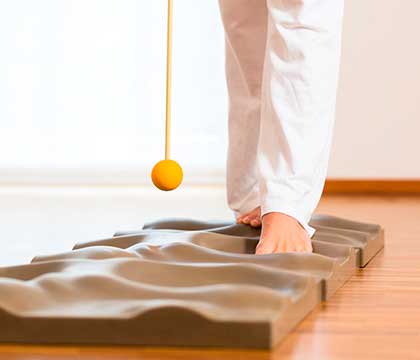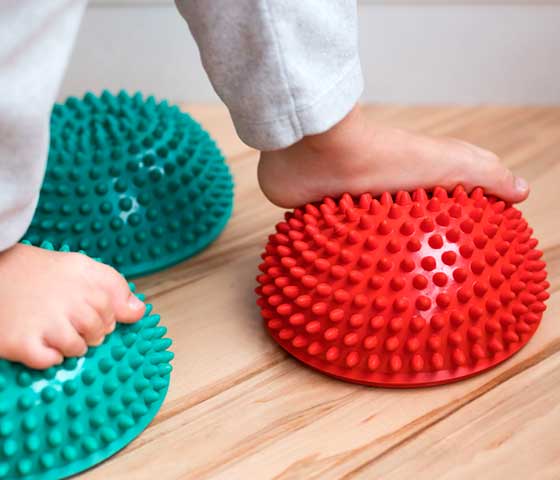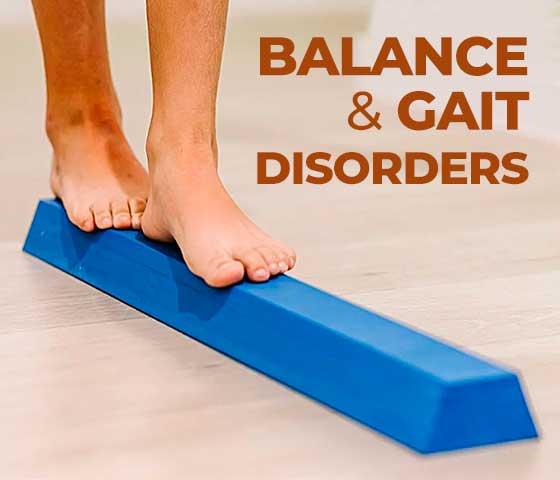Balance and gait disorders encompass a range of conditions that affect a person’s ability to maintain stability while standing, walking, or moving. These disorders can be caused by various factors, including neurological conditions, musculoskeletal issues, aging, medication side effects, or other health problems.

Neurological disorders can disrupt the signals between the brain, spinal cord, and muscles, leading to balance and gait problems. Musculoskeletal issues such as arthritis, joint pain, or muscle weakness can also impact stability and walking ability. Inner ear problems, such as vestibular disorders, affect the body’s sense of balance and spatial orientation.
The Difference Between Balance And Gait Disorders:
Balance Disorders
Balance issues can be both physical and neural because of interference or mixed signals between your brain and your body. You may get a sense of falling, stagger when walking, or feel as if you are floating. Blurred vision and dizziness are other typical symptoms. Changes in joint strength, mobility, and proprioception (or joint awareness) all have an impact on your balance.
Gait disorders
Gait abnormalities create irregular motions in the way you walk and run and may become more pronounced as you become older. For example, strokes, inner ear difficulties, foot ailments, and even something as basic as ill-fitting shoes might trigger them.
One of the most effective treatments for balance and gait issues is physiotherapy. When you come in for your first appointment at Revolve Physiotherapy our trained physiotherapist will perform a thorough physical examination of your balance, gait, stance, medical history, and symptoms. Afterward, a unique treatment plan will be tailored to your specific needs.
Some common balance and gait disorders include:
Vertigo: A sensation of spinning or dizziness, often due to inner ear problems like benign paroxysmal positional vertigo (BPPV), vestibular neuritis, or Meniere’s disease.
Ataxia: Impaired coordination of voluntary muscle movements, often caused by damage to the cerebellum or its connections.
Parkinson’s disease: A progressive neurological disorder that affects movement, causing tremors, stiffness, and difficulty with balance and coordination.
Peripheral neuropathy: Damage to the nerves outside the brain and spinal cord, which can lead to numbness, tingling, and weakness in the extremities, affecting balance and gait.
Musculoskeletal issues: Conditions such as arthritis, muscle weakness, joint stiffness, or injuries can affect balance and gait.
Stroke: Damage to the brain from a lack of blood flow can lead to weakness, paralysis, or coordination problems that affect balance and gait.
Multiple sclerosis (MS): An autoimmune disease that affects the central nervous system, leading to a range of symptoms including impaired balance and coordination.
Medication side effects: Certain medications, particularly those that affect the central nervous system, can cause dizziness, lightheadedness, or impaired balance.
It’s essential for individuals with balance and gait disorders to work closely with healthcare professionals to develop a personalized treatment plan that addresses their specific needs and improves their quality of life. Treatment for balance and gait disorders depends on the underlying cause.

Physiotherapy is one of the most recommended treatments. At Revolve, we will guide you how to improve strength, coordination, and balance. In addiction, vestibular rehabilitation exercises to address inner ear problems, assistive devices like canes or walkers, and in some cases, surgery or other interventions.
Balance and gait problems do not have to rule your life. Our team can quickly assess you and can teach you the best techniques for improving your balance and walking ability.
Call us now (905) 864.8181 and talk to one of ours specialist. Certainly, you will meet the best care team in Milton.
